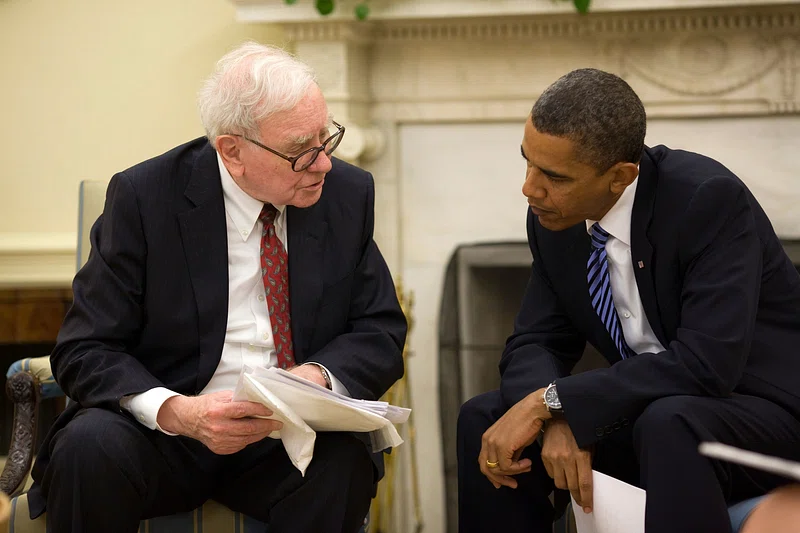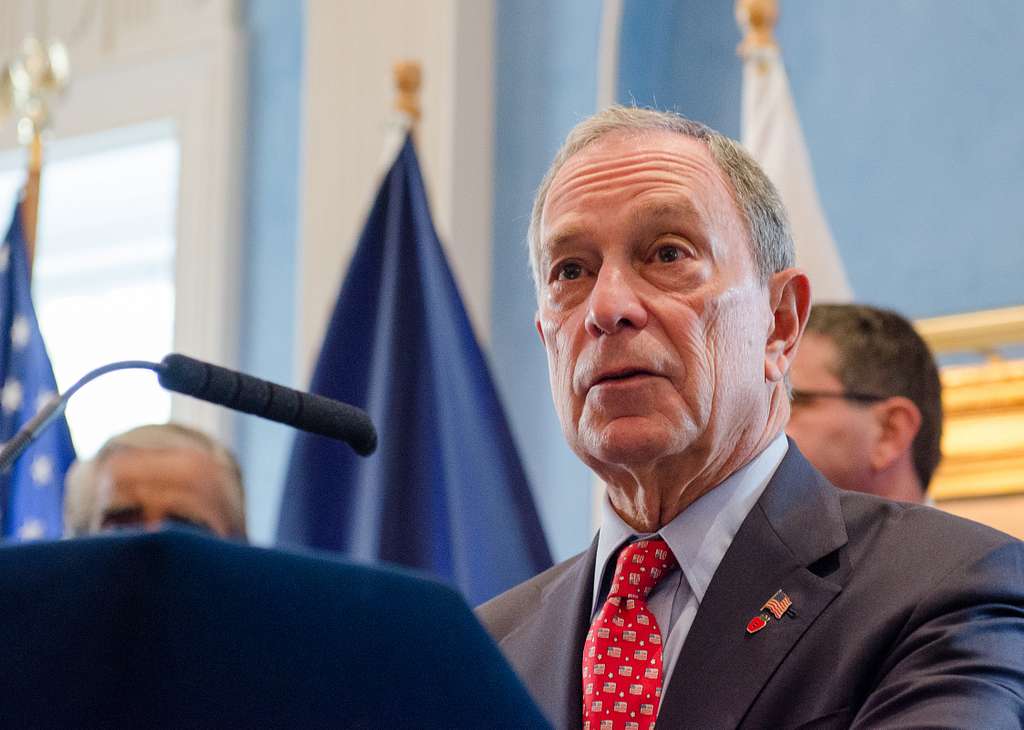You ever meet a retired millionaire who just radiates peace? Like, they’re sipping their matcha on a Tuesday morning, halfway through planning a trip to Kyoto, and casually mention their side hobby of restoring vintage race cars—for fun. Meanwhile, you’re still trying to remember if you paid the water bill. What gives?
Turns out, the wealthiest retirees aren’t just lucky—they’re playing a whole different game. It’s not about hoarding yachts or flexing on yachts (okay, maybe a little of that). It’s about how they spend their time and money once the 9-to-5 is in the rearview. They approach retirement like a second act—just with better lighting and no Zoom calls. Here’s what they do differently, and what the rest of us might want to steal, remix, or at least daydream about.
1. They Keep Their Money Working Harder Than They Do

While many retirees shift their portfolios to conservative investments, the affluent understand the importance of keeping a portion in growth assets. According to Investopedia, maintaining some stock exposure post-70 is crucial to combat inflation and ensure long-term financial health. They often employ strategies like the “bucket approach,” allocating funds into short-, medium-, and long-term needs, ensuring liquidity while still capturing growth.
This proactive approach isn’t just about wealth accumulation; it’s about preserving purchasing power and leaving a legacy. By regularly rebalancing and diversifying their portfolios, they navigate market volatility with finesse. Many also seek professional advice more regularly, fine-tuning their allocations quarterly rather than yearly. They view investing not as a chore, but as a lifestyle—like golf, but with spreadsheets. And let’s be honest, watching your dividends roll in feels a lot better than watching your lawn grow.
2. They Embrace a Higher Withdrawal Rate

The traditional 4% withdrawal rule has been a staple in retirement planning. However, MarketWatch reports that its creator, Bill Bengen, now suggests a more generous 4.7% rate, with some scenarios supporting up to 5.5%. Wealthy retirees leverage this updated guidance to enjoy their wealth without undue fear of outliving it.
By understanding their unique financial situations and adjusting withdrawal rates accordingly, they strike a balance between enjoying their wealth and ensuring its longevity. This flexibility allows them to fund passions, travel, and philanthropy, enriching their retirement experience. They also tend to have dynamic withdrawal strategies—spending more in good market years and tightening up a bit when things dip. It’s not about YOLOing your way into bankruptcy; it’s about treating your retirement budget like a living document. Think of it like a playlist: sometimes you skip the sad songs and go straight to the bangers.
3. They Diversify Income Streams Like Pros

Relying solely on Social Security or a pension? Not for these retirees. Forbes underscores the importance of multiple income streams, from dividends and rental income to annuities and royalties. This diversification not only provides financial stability but also offers flexibility in spending and investing.
By having various income sources, they can adapt to market changes, seize investment opportunities, and support causes close to their hearts. It’s a strategic approach that ensures their lifestyle remains uninterrupted, regardless of economic fluctuations. Passive income isn’t just a buzzword for them—it’s a financial reality they built over decades. And no, it’s not all Wall Street wizardry; sometimes it’s just owning a duplex in Scottsdale. With the right mix, they’ve basically created a choose-your-own-adventure book… with cash flow.
4. They Structure Their Days with Purpose

Retirement doesn’t mean a free-for-all of leisure. As Kiplinger notes, successful retirees maintain routines to provide structure and purpose. Whether it’s morning workouts, volunteering, or pursuing hobbies, these activities offer fulfillment and a sense of accomplishment.
This intentional structuring combats the aimlessness that can accompany retirement, promoting mental well-being and satisfaction. By setting goals and engaging in meaningful activities, they continue to grow personally and contribute to their communities. And no, “watching The Price Is Right” doesn’t count as structure (unless it’s followed by pottery class). Many even schedule “office hours” for managing finances or passion projects. Their calendars might be color-coded tighter than a CEO’s—because they treat every day like it still matters. Spoiler alert: it does.
5. They Outsource to Optimize Their Time

Time is a precious commodity, and wealthy retirees know its value. The New York Post reveals that affluent individuals often delegate tasks like cooking and cleaning, freeing up time for pursuits they truly enjoy. This delegation isn’t about luxury; it’s a strategic choice to focus on activities that bring joy and purpose.
By outsourcing routine tasks, they can invest time in relationships, passions, and experiences that enrich their lives. It’s a deliberate approach to ensure their retirement years are spent on what truly matters to them. Think of it as retirement decluttering: fewer chores, more cheese tastings. For them, buying back time isn’t just a privilege—it’s a priority. From hiring travel planners to personal chefs, their golden years are less “to-do list” and more “bucket list.” Honestly? Goals.
6. They Treat Health Like a Full-Time Job

Wealthy retirees aren’t waiting for a diagnosis to hit the gym—they’re already three laps ahead, literally. For them, health isn’t just about avoiding illness; it’s about optimizing performance. Their calendars include personal trainers, weekly massages, and maybe even a sneaky IV drip session with vitamins you’ve never heard of. While some retirees take a walk after dinner, these folks are doing sunrise yoga with a view.
And don’t even get them started on food. Meal prep? Please. They’ve got dietitians curating anti-inflammatory, brain-boosting menus delivered to their door. They view their bodies like luxury cars: you wouldn’t pour gas station coffee into a Rolls, would you? It’s not vanity—it’s strategy. More energy means more travel, more hobbies, more everything. Aging gracefully isn’t a hope; it’s an intentional system. And they’re running it like CEOs.
7. They Travel Like It’s Their Side Hustle

You know that one friend who’s always in a different timezone? That’s basically every wealthy retiree. But don’t picture oversized tour buses or matching visors—think private cooking classes in Tuscany or chartering a boat to remote islands. They’re not just tourists, they’re experience collectors.
They plan their trips around culture, connection, and yes, a little indulgence. Travel isn’t an escape; it’s a reward for decades of hustle. And since time is their currency now, they’re in no rush. First class? Of course. Custom itineraries? Naturally. They’ve turned globetrotting into an art form, and the world is their curated gallery. Retirement passports: heavily stamped, tastefully worn.
8. They Turn Hobbies Into High-End Pursuits

You knit. They have a personal textile artist guiding their loom technique. Retirement isn’t the end of ambition—it’s just redirected. For the wealthy, hobbies don’t have to be “small.” If they love photography, they’re in Patagonia shooting with a Leica and a pro guide.
They approach new interests with the same energy they used to build careers. It’s violin lessons with symphony-level instructors or learning Italian in Rome, not just on Duolingo. They spend real money on becoming really good at things they love. And because they don’t need hobbies to be profitable, they get to explore for the joy of it. That joy often leads to mastery. And let’s be honest—when they enter a pickleball tournament, it’s with monogrammed paddles. For them, fun deserves funding.
9. They Give Generously—But Intentionally

Philanthropy isn’t just writing checks for tax breaks. Wealthy retirees often treat giving like investing—with impact, research, and heart. They pick causes that resonate deeply, from education to the environment to funding local art. It’s personal, strategic, and very hands-on.
Some even build their own foundations or sponsor fellowships. They’re not about passive donations; they want to see the ripple effect. And yes, some of them do it quietly—no plaques, no press, just purpose. Giving becomes a legacy move, not just a financial one. It connects them to a bigger story. Plus, it feels good. Like, really good. Turns out fulfillment has a better ROI than stocks.
10. They Stay Social—But Skip the Drama

The wealthiest retirees are extremely intentional about who they spend time with. Gone are the days of tolerating energy vampires. If the vibes are off, they’re out. Instead, they prioritize deep, enriching friendships—think mastermind dinners, spiritual retreats, and golf weekends with lifelong pals.
They know that loneliness can be just as damaging as poor health, so they make connection a daily practice. That might look like weekly dinner parties, pickleball leagues, or even travel squads. But it’s never about quantity—it’s quality over everything. They nurture relationships that energize, inspire, and support. There’s no room for toxic group texts or guilt-laden reunions. Retirement is their time, and they spend it with people who make their world feel bigger, not smaller. Emotional wealth matters too.
11. They Educate Themselves Like It’s a Competitive Sport

The learning doesn’t stop at 65—it accelerates. Wealthy retirees are voracious learners, not just to stay sharp but to stay excited. They’re in online masterclasses, guest lecturing at local universities, or flying in experts for private seminars. Yes, really.
They treat curiosity as currency. Whether it’s diving deep into ancient philosophy, digital currencies, or regenerative farming, they’re always in some kind of intellectual rabbit hole. Reading isn’t a pastime; it’s a mission. And they don’t just learn—they apply. Education becomes a tool for reinvention. Because who says you can’t start your 10th career at 72? Their minds are active playgrounds—and the slides are steep.
12. They Plan for the End—So They Can Focus on Living

This one’s not sexy, but it’s powerful. The wealthiest retirees don’t shy away from estate planning, end-of-life documents, and legacy conversations. They face it head-on, get everything dialed in, then move on with peace of mind.
Wills, trusts, health directives, the whole nine yards—they’ve got pros managing it all. It’s not because they’re morbid; it’s because they’re smart. When your affairs are in order, you’re free to actually live. No nagging worries. No messy drama left for loved ones. It’s the ultimate boss move—setting the stage so your story ends well. And until then? Curtain’s up, baby.
This article is for informational purposes only and should not be construed as financial advice. Consult a financial professional before making investment or other financial decisions. The author and publisher make no warranties of any kind.









